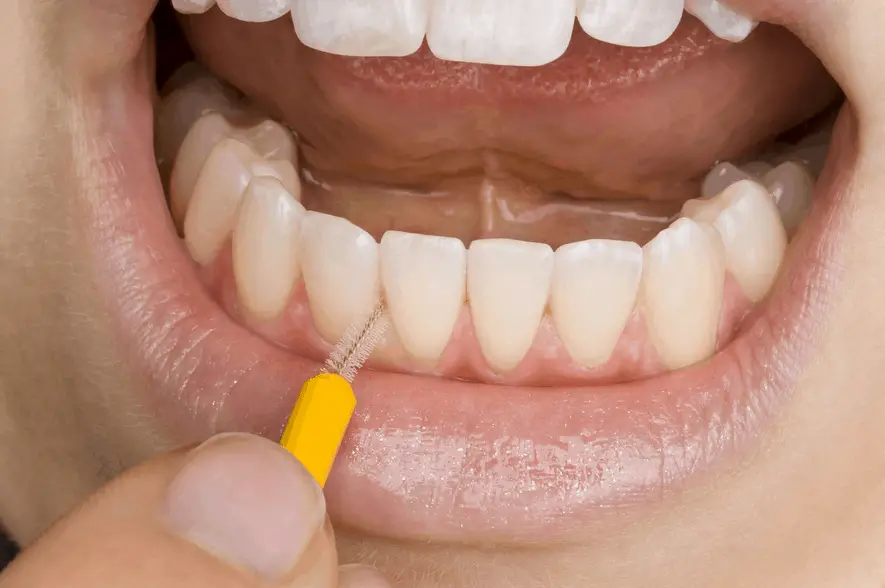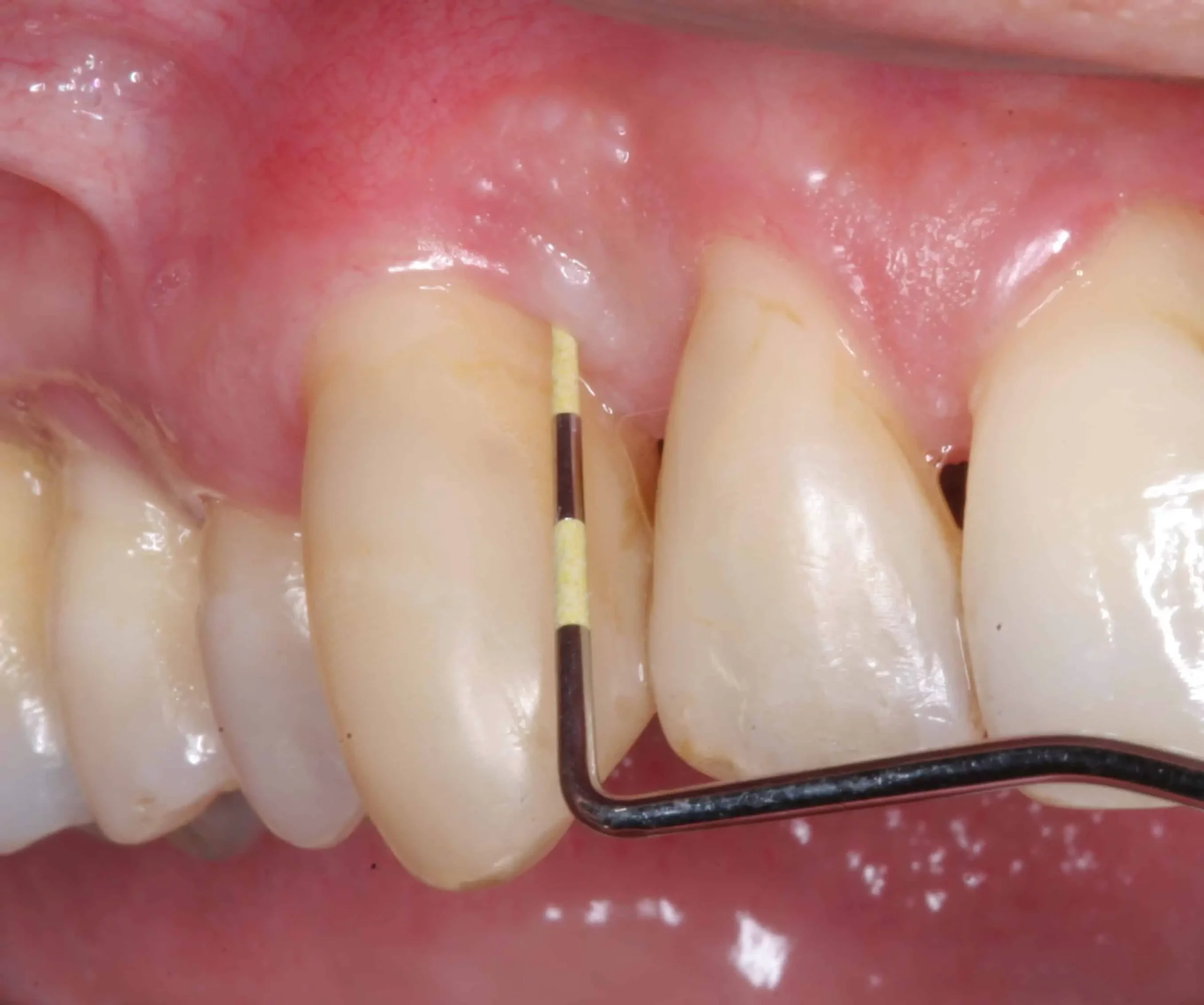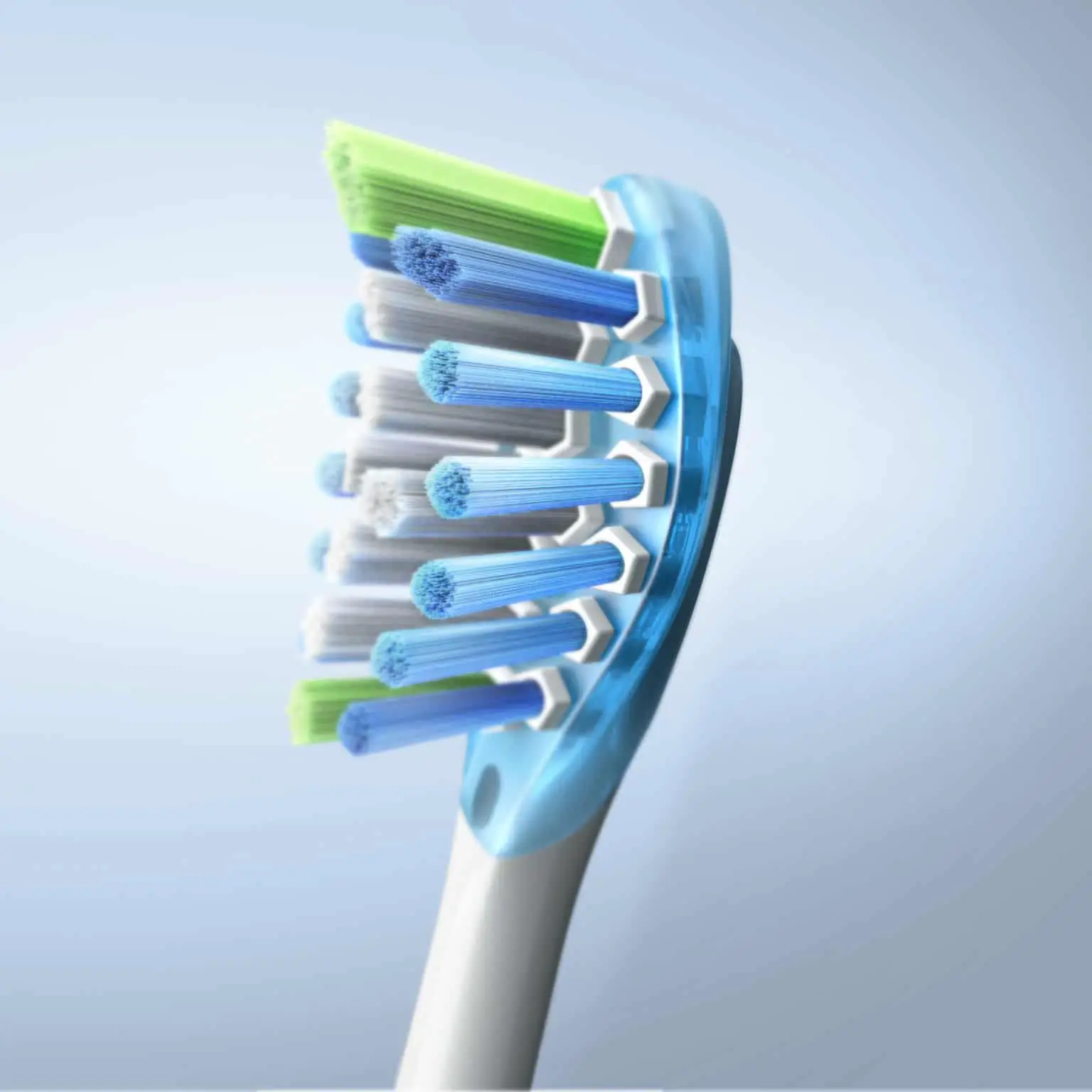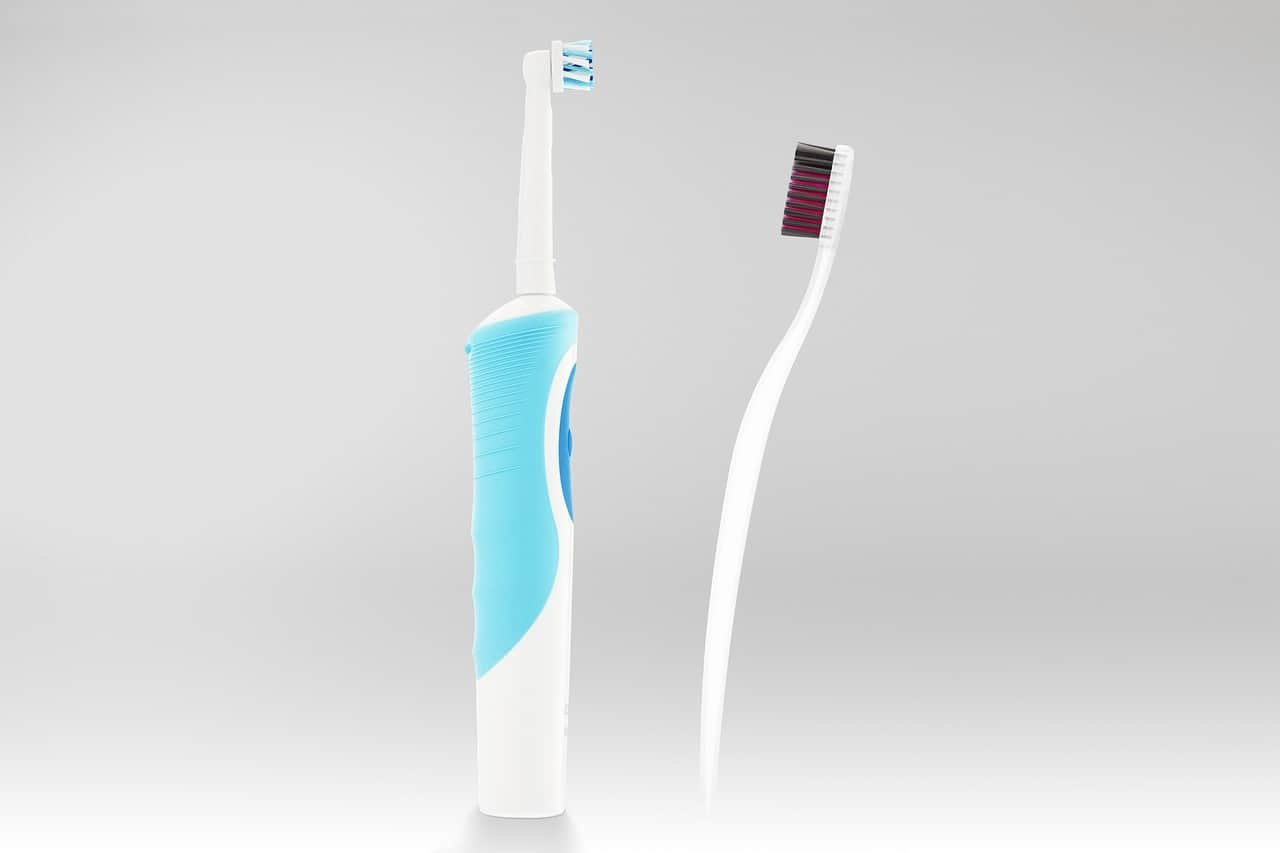Gum disease affects the majority of adults in today’s world and is terrible because it ruins your teeth but more importantly it shatters your self-confidence and lowers your self-esteem. But let’s be honest, who’s fault is it that we have horrible teeth. You can’t blame anyone but yourself.
I personally did not care about my teeth until about 10 months ago when I saw the dentist in over 2 years. My fillings were loose, plaque forming all over teeth and bleeding gums. At that point I thought what can I do about gum disease?
I started researching and looking for ways to heal my teeth and thankfully I have reached a point now that I feel my mouth is much healthier than it has ever been.
But today I want to share a story about someone else who was in a worse situation than me, she had periodontal disease but has managed to change it around and is happier than she has ever been.
If you read through this post you will find some golden information on what Felicity did to combat her gum disease and how you can do the same and have similar success. So Let’s get into it:
My Struggle With Gum Disease

I have struggled with gum disease for years. I was terrified of the dentist and avoided going wherever possible, and I smoked for years. I knew I was damaging my teeth and I showed because my gums were getting worse – I could tell as they would bleed when I brushed them, my teeth were sensitive and I could see that my gums were receding, but I was too scared to do anything about it. While I knew that if I didn’t get them sorted out I’d cause myself huge problems, I couldn’t quite bring myself to go to the dentist.
Things changed when I was brushing my teeth one day, and realised that my two front teeth at the bottom of my mouth were incredibly loose. They felt like wobbly teeth I’d had when I was a child did, and this terrified me – I had visions of them just falling out over the upcoming few weeks and that thought was awful.
I psyched myself up to go to the dentist, who did X-rays and examined the teeth. He told me that the bone and tissues had receded, and if I didn’t change my oral hygiene habits incredibly quickly I would most probably lose my two bottom front teeth within the next 6 months. I’m not even 30 years old, and I couldn’t comprehend how I’d done such damage to my teeth and gums.
I made a major life decision right there – to stop pretending it wasn’t happening and get my life together – and asked him ‘what can I do about gum disease?’ – The million dollar question! I followed all his advice almost religiously – I stopped smoking, I started using an inter-dental brush and a very soft toothbrush.
I brushed my teeth for a minimum of 3 minutes twice a day, and I started going to the dentist for a professional clean every 3 months. In my most recent visit (a year on from the initial appointment), he told me that with the current state of my gums, I can expect my front teeth to last for at least another 10 years if I keep up this level of care. I think that’s a result!
What Actually Is Gum Disease?
Gum disease is something that affects a huge amount of people worldwide. It is a term used to describe a whole range of gum problems, as there are many stages of gum disease. It ranges in severity from gingivitis to periodontitis.
Gingivitis is the beginning of gum disease – this is when plaque builds up around the teeth and gums, and causes the gums to start becoming red and swollen. Gingivitis often causes the gums to bleed when they are brushed, and this bleeding is one of the most common symptoms of gingivitis.
It’s possible to ‘cure’ gingivitis – as it does not cause any bone loss or tissue loss, if you start to take very good care of your teeth and gums after a gingivitis diagnosis and visit your dentist regularly for professional cleaning, it’s possible to stop gingivitis developing into periodontal disease.
Periodontal disease is caused when gingivitis is left untreated, and starts to affect your bone and tissues. Periodontal disease means that the bacteria have started to wear away at the gum tissue and bones around your teeth, and create small pockets around the base of your teeth.
These pockets are ideal places for bacteria to stay and develop, and while the body tries to fight these bacteria, it ultimately leads to the destruction of tissues and bones. This in turn causes the gums to recede, and eventually the bone surrounding the teeth can become so weak that teeth become loose and fall out. Once gum disease progresses from gingivitis to periodontitis, it is not possible to reverse this.
Bone and tissue will not grow back, but it is possible to manage this condition to ensure your gums stay as healthy as possible! If you can keep your periodontitis under control you are much more likely to keep your teeth, and stop your periodontitis from developing further.
Why Do People Get Gum Disease
There are many things that cause gum disease. Genetics plays a small part in this – if your parents have had gum disease then you are more likely to develop it, but your lifestyle and the care you take of your teeth is the biggest contributing factor to gum disease.
The most dangerous cause of gum disease is smoking – the constant supply of nicotine entering you mouth lingers around your gums, and smokers are over 50% more likely to develop gum disease than non-smokers. Chewing tobacco is almost just as bad – as it contains nicotine that is kept in the mouth, it directly affects the surrounding gums.
Poor oral hygiene is also a huge contributing factor. If you don’t brush your teeth regularly or thoroughly, you are leaving more bacteria in your mouth. It’s these bacteria that cause gum disease.

If you don’t use something like dental floss or an inter-dental toothbrush, then you are allowing bacteria to stay between your teeth. This plaque builds up and causes gum disease.
Certain medical conditions can also make you more at risk of developing gum disease. Diabetes, AIDS and cancer sufferers are more at risk of gum disease. This is a because of both the diseases themselves and the medications used to treat them. There are also many medicines, both over the counter and prescription, which lessen the amount of saliva in your mouth.
Saliva is essential for healthy gums as it contains many enzymes which fight bacteria and keep your mouth healthy. When you don’t have enough saliva in your mouth, it’s much easier for germs and bacteria to breed and thrive. There have also been studies which show hormonal changes in women can cause gum disease to develop, although it is not known to what extent this is the case.
How Can I Tell If I suffer From This Problem
There are a few very common symptoms of gum disease. If you have one or more of these symptoms, it’s a very good idea to go to your dentist as soon as possible to get your teeth looked at. Your dentist will be able to tell you if you have gingivitis or periodontal disease, and what you can do to help your teeth.
- Swollen gums. Gums that appear swollen and very red are not healthy, and this can be an early sign of gum disease.
- Bleeding gums. If your gums bleed when you brush your teeth, go to your dentist straightaway.
- Sensitive teeth. Teeth that are sensitive to brushing can be a sign of either gum disease or a problem with a tooth – either way; it’s worth getting a dentist to check it out.
- Bad breath. While this could be caused by many things, it’s often a sign of gum disease.
- Loose teeth. Having teeth that are loose is a sign that gums are weakening, which is a symptom of gum disease.
- Receding gums. If gum disease progresses to periodontitis, bone and tissue can start to degenerate. If you notice that your gums are receding or that your teeth are looking longer, then go to your dentist straightaway.
How Is Gum Disease Diagnosed?
While going to the dentist can be terrifying for so many people, visiting your dentist is essential to get gum disease diagnosed. If you are nervous about your gums, tell your dentist about this and they will be able to reassure you. While it’s so tempting to stick your head in the sand about it, this isn’t going to help you in the long run.
The earlier you get gum disease diagnosed, the more you’ll be able to stop it progressing. When you go to a dentist, they have a few ways of diagnosing gum disease. The first thing they will do is look at your gums. They’ll examine them and the areas around your teeth to see what swelling they can see, if any, and if they can see any build-up of plaque.

They will use a special measuring tool to measure the gaps, or pockets, between your teeth and your gums to see how many millimetres they measure. This will help them to see how far the gum disease has progressed, which will tell them the best ways to progress your treatment further.
They may take X-rays too, to have a look at your bones and see whether you have started to lose any bone. None of these things will hurt – if you don’t like having dental procedures done, just keep reminding yourself that these procedures to check for gum disease don’t hurt at all, and they will go a long way to prevent you having to have potentially painful procedures done in the future.
While it is possible to visit a hygienist rather than a dentist to have your teeth cleaned and to have gum disease diagnosed, it is always a good idea to see a dentist first as they are more able to advise on specific procedures – potentially surgical procedures – that will help you.
What Should I Do To Overcome This Disease
The first thing that you need to do if you have gum disease is to talk to your dentist! They will be able to recommend the best course of action for you. The most important thing you can do is to keep your teeth and gums completely clean – once bacteria is left on teeth and hardens into plaque, it becomes impossible to remove yourself so this has to be done by a dental professional.
Visiting the dentist regularly will hugely help you in your battle to stop your gum disease becoming more severe. Your dentist will be able to monitor the condition of your gums, and advise how regularly you need a professional cleaning. If you smoke, the single most important and effective thing that you can do to stop your gum disease becoming worse is to stop smoking! Your dentist or doctor will be able to advise a whole host of options available to you for help with this.
Smoking consistently weakens your gums – every cigarette that you smoke will damage your gums further – and stopping this damage will improve your gum health significantly. Looking after your oral hygiene is also essential in the fight against gum disease.
Using a good inter-dental toothbrush or flossing regularly will ensure that you help to prevent a build-up of plaque in between your teeth – your dentist will be able to recommend what they think will be the most effective method for you.
Making sure that you are brushing your teeth regularly is important – my dentist told me that the ideal length of time to take brushing your teeth is the length of time that it takes to listen to Bohemian Rhapsody – which is a great way of passing the time and always a fantastic song to listen to! Brushing your teeth twice a day for this amount of time is perfect.
Also, make sure you’re not brushing too hard – you don’t want to be too aggressive with your gums, especially if they’re sensitive, so if you’re prone to brushing your teeth too hard then look into getting a softer toothbrush.
My (Not So) Secret Routine That Gave Me Success
Every day you need to take around 15 minutes to look after your teeth. I have developed a daily routine that fits easily into my day to day activities, without me having to spend too much time thinking about it.

As soon as I get up in the morning, I brush my teeth and use an inter-dental toothbrush to ensure I’ve got nothing building up between my teeth. I also floss and use a mouthwash to give me that extra layer of freshness.
At night, I do just the same thing. I take my time to make sure every tooth is looked after equally – it’s so easy to avoid teeth that are slightly more painful or difficult than others, but I’ve made sure I don’t do this anymore.
Every few days I use a tongue scraper to clean my tongue – people are always amazed how much plaque can build up on the tongue. I make a real effort to take care of the quality of my brushing too – I take my time with it, and I keep checking I’m not brushing too hard or too soft as both don’t help.
I’ve also cut down the amount of sugar I eat – I’ve replaced all my soda drinks with either fizzy water or diet drinks. These are all small things, but together they’ve made a huge difference to the state of my teeth.
Are There Any Additional Home Remedies I Can Utilise For Maximum Effect
While your dentist can do a lot, there are also some methods and remedies you can use at home to help your gums. With all home remedies, speak to your dentist before trying them – certain methods will suit certain people in different ways.
One of the most universally beneficial home remedies is salt water – washing your mouth out with salt water is a great way to reduce inflammation and help to fight bacteria, and you can do this a few times a day to help your gums.
It doesn’t taste great, but it’s wonderful at fighting infection! Many people recommend things like Aloe Vera, green tea extract or coconut oil to be used as a mouthwash to help fight gum disease, but there aren’t enough medical studies that prove or disprove the effectiveness of these.
If you’re thinking about trying something like this, always consult your dentist first. It’s also incredibly easy to forget about your gum health when you’re rushing around in day to day life – putting sticky note reminders or setting alarms on your phone to remind you to take 5 minutes to take care of your teeth is hugely helpful, as it’s only with regular care and attention that you’re going to be able to help your gum disease.
My Personal Recommendations
There are 2 things that I highly recommend you invest in and they are:
- Electric Toothbrush
- Dental Pro 7
Electric Toothbrush

Studies have proven time and time again that electric brushes are more powerful and better at removing plaque from teeth than regular toothbrushes. According to a study done by Sheffield university, rotating brushes remove 11% more plaque than manual toothbrushes, and also reduce other gum related problems such as gingivitis.
Another thing with electric toothbrushes is they are much easier to use, all you need to do is simply place the brush head against each individual tooth and let the sexy oscillation and pulsations do the rest, YOUR TEETH WILL THANK YOU.
They also come with built in timers so you know when to stop, which is super handy as I myself tended to finish well under 2 minutes when I use to have a manual toothbrush.
My personal recommendation is that you go for the Oral B 5000. With over 2000 reviews on Amazon and being a number 1 seller, you can’t possibly go wrong!
This is a powerful natural product aimed at people who suffer from various problems related to gum disease. Some things it targets are:
Its highly concentrated with natural essential oils that deliver anti bacterial, anti septic and anti inflammatory effects in your mouth. This is a product you need to look into if you are serious about fighting gum disease. The full review can be found here: Dental Pro 7 – Scientifically Proven.
I Am So Scared/Angry/Sad I’ve Got Gum Disease – Is It Hopeless?
The short answer to this is NO!, While it’s always horrible getting a bad medical or dental diagnosis, the absolute worst thing you can do is give up. I know from personal experience that while it’s not possible to cure gum disease, it’s absolutely possible to keep it under control and stop it from ruining your life.
I’ve incorporated good dental care into my daily regime, and now I don’t even think about it. I know I’ve done damage to my gums and I’m always going to be sad about that, but I’m so proud of myself that I got over my fear of dentists to sort the problem out.
As a result, I’m now experiencing the utter joy of knowing that I’m in control of the problem, my gums are much healthier than they have been in years and that if I carry on like I am doing, I can expect much better gum health for the rest of my life. It’s fantastic!
So worry not, if you are someone who suffers from this same problem there is still a good chance you can fix it but only if you start today, NOW!.
If you have any questions that you think were left unanswered please feel free to comment below and we will make sure to get back to you.
